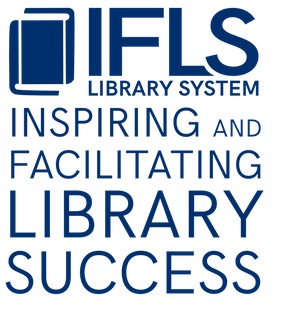Upcoming Check-ins:
October 13, 2-3:30: Disinformation Virtual Escape Room and Discussion. Misinformation, disinformation, and manipulation of facts are prevalent and can be tricky to spot. Librarians have been trying to find a way to share information about this and empower their communities to develop the skills to recognize and avoid spreading disinformation, and the iSchool at University of Washington has come up with a cool tool for librarian’s toolboxes! Join Katelyn and Leah for a trial run of a virtual escape room designed to help teens and adults learn about the topic, and then a debrief and discussion to help figure out how you might apply this to your own situations. To participate fully, you will need a microphone. Extra points for having your camera on! Register here: https://us02web.zoom.us/meeting/register/tZEud-qsqTsvE9ytrJetnLemxR2uPy7NkFtq
November 16, 1-2: Youth Services Virtual Check-in–Service to School Age Kids. We’ll take this opportunity to get to know each other a little better and talk about what is going well and what is challenging about programs, outreach, collections, promotion, and relationship-building for school age kids. Watch for information to join via email, or contact Leah for information.
3-M Visiting Wizards Workshop
Many thanks to Barb Krueger from Deer Park for sharing information this cool upcoming workshop, full of interactive activities and exhibitors from museums and presenters from the western part of Wisconsin and the Twin Cities area. September 30, 3-6:30 at the 3-M Center in Maplewood, MN.
September Youth Services Check-in Follow-up
Twenty one youth services librarians in one place! Very exciting. We had a fabulous tour of the renovated library in Eau Claire from Kelly Witt (there was some jealousy, I will admit). Then a rousing discussion about what went well this summer, along with discussion about prizes, record keeping, Beanstack, and what the goal is of the summer program. We followed that up with some small-group conversations about responding to people who are concerned about items in the collection, displays, or programs–whether they are curious or furious. The focus of the discussions was:
- How to de-escalate and connect with the person
- How to stay calm yourself
- How to stay on-message (and clarifying what the message is)
Some great ideas that came from your peers (and from Cecelia Cole, the IFLS Resource Sharing and Collection Consultant):
- Actively listen–make sure the person knows you hear what they are saying. You don’t need to respond IMMEDIATELY. Make sure you understand their concern first.
- Try a calm and gentle tone
- Let people know you will speak with the director about this (and then make sure you do that–also create a paper trail)
- Prepare ahead of time with:
- policies
- procedures
- making sure everyone is on the same page and there is consistency
- PRACTICE and talk about this as a staff before something happens
- Think about open records requests that might occur
- Developing strong relationships with community members
- Messages:
- The library is a service for the whole community
- Offering to help them find materials that they might appreciate more
- “It’s great you are monitoring your kids’ reading. You have every right to limit your own child’s choices, but there are other parents who want their children to have access to this information/these titles.”
- Consider talking about data for some situations: for instance, what percentage of the collection is about LGBTQIA+ people? (collection audits can be useful for this–watch for more resources coming soon about this, but in the meantime check out this webinar!)
- Taking care of yourself
- Navigating personal attacks is really difficult, especially in a small town. If you need to separate yourself from the situation and you are not the director, consider not attending board meetings.
- Remember that a lot of things are out of your control and be kind to yourself.
- Remember that the overwhelming majority of people are against censorship.
- Watching out for self-censorship: how do you keep track of the desire to avoid controversy? Examine what you are doing and why.
- Remember to check out the frequently-updated IFLS resource on preparing for and dealing with challenges, and don’t forget to reach out to us at IFLS if you want to talk more about any of this–especially Cecelia and Leah!
